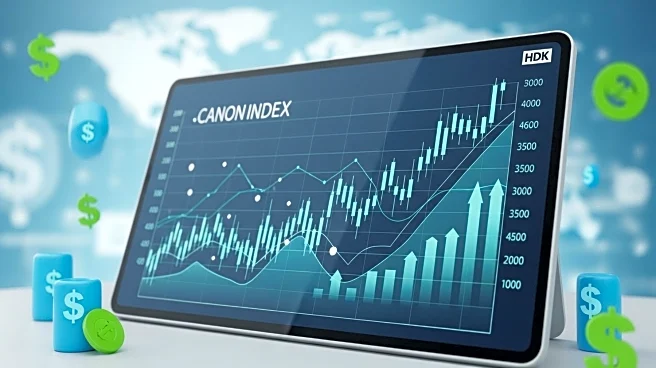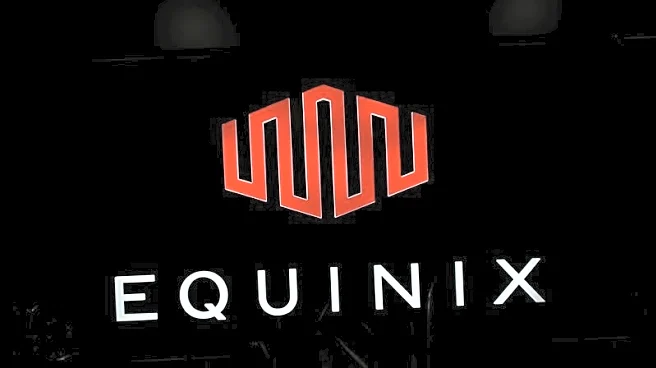What's Happening?
S&P Global, the company behind the S&P 500 index, has established itself as a major player in the financial industry, generating substantial revenue from its indexing business. The S&P 500, a stock market index listing the 500 largest public companies in the U.S., serves as a benchmark for investors and is widely used in retirement plans. The index is updated constantly, reflecting real-time changes in the stock market. S&P Global earns revenue by licensing the S&P 500 name and data to financial products such as index funds and exchange-traded funds (ETFs). These products allow investors to easily invest in the companies listed on the S&P 500. The company's indexing business has grown significantly over the years, employing hundreds of people and generating billions in revenue. Despite the presence of competitors like the Russell Indices and MSCI, the S&P 500 remains the dominant index due to its trusted brand, economies of scale, and widespread use as a benchmark in the financial industry.
Why It's Important?
The dominance of the S&P 500 index has significant implications for the U.S. economy and investors. As a widely recognized benchmark, it influences investment decisions and retirement planning for millions of Americans. The index's composition, heavily weighted towards tech giants like Apple and Microsoft, reflects the current state of the U.S. stock market, which is increasingly reliant on a few large companies. This concentration raises concerns about diversification and the potential risks associated with relying heavily on a small number of tech firms. However, the S&P 500's long-standing track record and its role as a barometer of the stock market make it a trusted tool for investors. The revenue generated by S&P Global from its indexing business underscores the importance of the S&P 500 in the financial industry and its impact on investment strategies.
What's Next?
The future of the S&P 500 index may involve addressing concerns about its concentration in tech stocks. As the index continues to reflect the performance of major tech companies, investors and financial experts may seek alternative investment strategies to ensure diversification. S&P Global may also explore expanding its range of indexes to capture different segments of the market, such as smaller companies or international stocks. Additionally, the ongoing development of financial products based on the S&P 500 will likely continue to drive revenue for S&P Global, reinforcing its position as a leader in the indexing business.
Beyond the Headlines
The S&P 500's influence extends beyond financial markets, impacting broader economic trends and public policy. Its role as a benchmark for investment performance shapes perceptions of economic health and can influence policy decisions related to taxation, regulation, and corporate governance. The index's focus on large companies also highlights the growing importance of corporate giants in the U.S. economy, raising questions about market competition and the role of smaller businesses. As the S&P 500 continues to evolve, its impact on economic stakeholders and society will remain a critical area of analysis.











